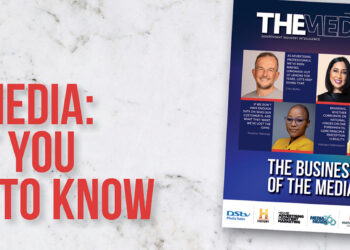A survey of South African journalists’ salaries – print, online and broadcasting – designed to show the value of data journalism has revealed that the number of years of experience is the key factor in driving salary determination. HacksHackers in Cape Town, an organisation working to embed a culture of data journalism in newsrooms, says it wanted to show how “data can be collected and visualised, to illustrate what is possible”.
Committee members Adi Eyal, Jason Norwood-Young, Carolina Ödman and Raymond Joseph undertook the survey, recruiting respondents via journalism forums on Facebook, Twitter, Projourn, Safrea, Geeklist and through The Media Online and Bizcommunity. The collection of data was confidential.
“After some debate, we included some questions on the race of responders as we were keen to identify any disparities that might exist between different racial groups, even though we realised some might take offence. In the event only seven out of 196 who responded did not answer the question about their race. Of those who responded, 68 percent were white and almost 21% were black, with a very small number of Coloured and Indian responders,” the researchers said.
Responses were broken into three basic job titles: editor – someone who tells someone else to make content; journalist – someone who makes content; and sub-editor – someone who fixes someone else’s content.
“Considering the make-up of many South Africa newsrooms, we believe there should be a higher representation of non-white (African, Coloured and Indian) journalists In some cases the samples were too small to be representative, particularly of Coloured and Indian journalists, who made up a very small part of the responders,” they said.
Despite its imperfections, the researchers said they see this survey as a “beginning of an ongoing process that will help establish a benchmark and grow in time”.
Some of the key findings showed:
- There was no major salary bias, neither between races nor gender;
- The biggest determinant of salary is experience: each additional year of experience earns you R1 000 per month;
- The average male salary of those who filled in the survey was R26 906, while the average female salary was R23 821, but there were several woman who earned way above the average;
- If you’re white and you earn an above average wage – you tend to think that South African journalism is in crisis. If you’re white and you earn less than the average wage – you don’t think so. Africans don’t have the same distribution – they mostly think that there is a crisis regardless of wage.
- Africans are mostly journalists. Whites are mostly editors. But this probably has more to do with the number of years of experience than anything else. (Editors tend to have more years of experience and black tend to have fewer years of experience.)
- If you’re in online, you’re often in print too. If you’re in print, you are sometimes also working online.
The research will be followed up with a Hacks/Hackers Cape Town meet-up soon, where hacks and hackers will get to play with the data in various ways. Look out for notification of the meet up on Facebook or join the Google Group.
Check out our Pinterest board here.






















